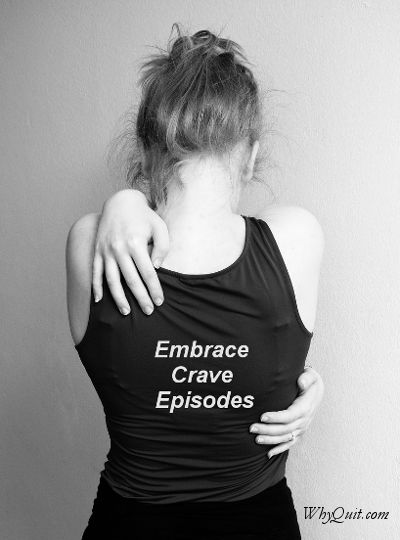How do you successfully navigate the sudden onset of a brief yet possibly intense crave episode? We've already reviewed a few ways, including reaching for your list of reasons for commencing recovery. Let's take a look at additional coping techniques.
But before doing so, research has found that coping techniques involving changes in thinking or doing (behavior) are highly protective against relapse. Maximum protection occurs when skilled in calling upon more than one coping strategy when needed. [1]
On June 25, 2020, Keith McDonald emailed me. Having broken free 11 years earlier Kieth wrote:
"Your site gave me some great info. I think the best is to be glad you are having a craving as it lets you know you are addicted. So every time I had one I let it come and go. I no longer have them but I always have people ask me how to quit. I tell them how and point them to your site for more info."
Keith's right. Coping research finds methods focusing on how we react to and engage crave stressors the most promising. [2] In the spirit of letting them "come and go," this was my go-to technique.
Embracing Crave Episodes
Upon sensing danger, our survival instincts tell us to either prepare to stand and fight or get ready to run. What approach will you use? Upon encountering a crave episode will you duck and run, or turn and fight?
While the objective is clear - to not use nicotine - our natural instincts on how best to achieve that objective may not be the easiest path to travel.
Can we hide from cravings or will they find us? Can we runaway or will they catch us? It's the same with going toe to toe in battle, isn't it? Can we beat-up craves and make them surrender or cry uncle? Can we scare them away?
Encountering and extinguishing use cues is how we mend, heal, repair and reclaim a nicotine-dependent subconscious mind. It's how we destroy use expectations and take back life.
While nicotine is a natural poison, what about craves? Can a crave that lasts 3 to 5 minutes destroy tissues, clog arteries and cause a heart attack or stroke, promote cancer, or contribute to early dementia?
Will a crave cut us, make us bleed, or send us to the emergency room? Can it physically harm us? If not, then why fear it, why run, why hide?
How much of the anxiety associated with recovery is self-induced? Nearly all.
So, why agonize over the anticipated arrival of that next crave? Once it does arrive, why immediately begin feeding our mind additional anxieties that only fuel the fire?
Let's not kid ourselves. The anxiety associated with a craving for nicotine is as real as the eyes reading these words. And fear of anxiety hides solutions.
While fully capable of mentally embracing a crave episode's anxiety energy, few have ever done so. Instead, what we feel is a tremendously inflated experience fueled by anticipation, driven by fear, and possibly tense due to a history of prior relapse.

Try this, just once. It's what researchers refer to as "confrontation."[3]
Instead of inviting your body's fight or flight response to inflame the situation, when the next crave arrives, stop, be brave, drop your guard, take slow deep deliberate breaths, and in your mind imagine reaching out and wrapping your arms around the crave's anxiety energy.
It won't harm or hurt you. It's normal to be afraid but be brave for just one moment.
Continue wrapping yourself around the episode as you fully embracing it. Continue taking slow deep breaths as you clear your mind of all chatter, worries, fears, and thoughts so that you can sense and appreciate the episode's level of raw anxiety.
Touch it, sense it, hug it hard. Doing so will not make it any more intense than it otherwise would have been. You're witnessing a moment of beauty, the most profound subconscious healing you've ever allowed your conscious mind to touch.
Yes, there is anxiety. But possibly for the first time ever, it's not being fed and fueled by you.
Now, feel as the crave episode's energy peaks and then begins to gradually subside. You've won! You've reclaimed another aspect of life. And you did so by way of courage not dread, by a hug, not hiding.
You've seen that the greatest challenge presented by natural recovery cannot hurt you. Only we can do that. Embrace recovery don't fear it. There's a special person waiting down the road. Your birthright, it's a long lost friend you'll come to know, savor, enjoy and love.
References:
2. Brodbeck J. et al, Distinct Coping Strategies Differentially Predict Urge Levels and Lapses in a Smoking Cessation Attempt, Addict Behaviors, June 2013, Volume 38(6), Pages 2224-2229.
3. Ploderer B, et al, A mobile app offering distractions and tips to cope with cigarette craving: a qualitative study. JMIR Mhealth Uhealth, May 2014, Volume 2(2):e23. doi:10.2196/mhealth.3209
All rights reserved
Published in the USA
